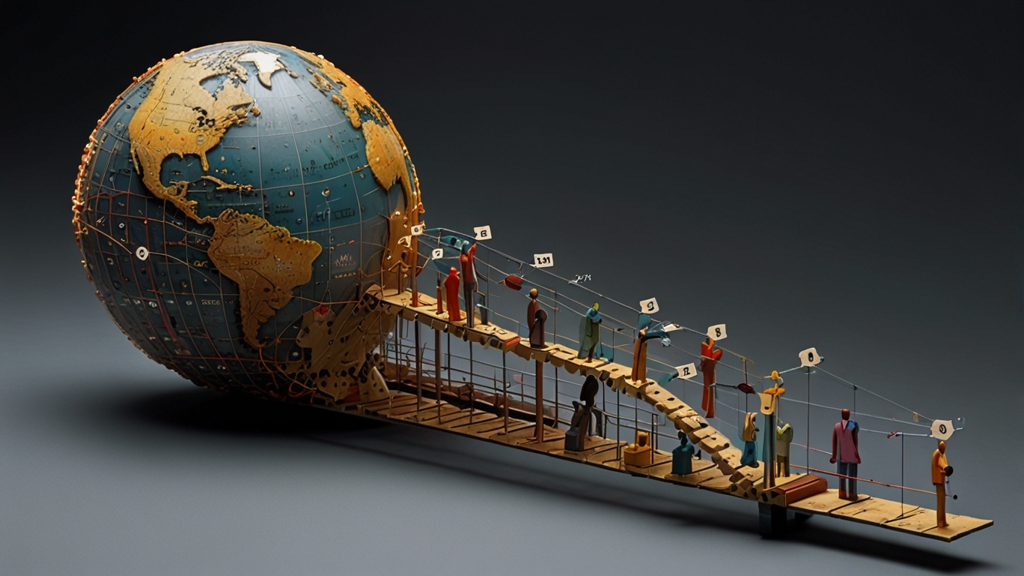Introduction
Calculus, often considered the study of change and motion, is a fundamental branch of mathematics introduced by Sir Isaac Newton and Gottfried Wilhelm Leibniz in the late 17th century. While it might seem like an abstract and daunting concept confined to textbooks and blackboards, calculus actually plays a vital role in various aspects of our daily lives and shapes our world in more ways than we might expect.
“Calculus is one of the greatest achievements of the human intellect. It's not just a tool for engineers and scientists; it's a window into understanding the universe's intricate dance of motion and change.”
The Language of Change
At its core, calculus is the mathematical study of continuous change, encapsulating two primary branches: differential calculus and integral calculus. Differential calculus focuses on rates of change, such as how quickly temperatures rise or how fast a car accelerates. Integral calculus, on the other hand, deals with the accumulation of quantities, such as calculating areas under curves or the total distance traveled over time.
These principles are not just theoretical constructs but practical tools used extensively in engineering, economics, medicine, and even in solving everyday problems. For example, when predicting population growth, economists use differential equations derived from calculus to create models that forecast future changes.
Engineering Marvels
Calculus is indispensable in engineering, serving as the foundation for the design and analysis of complex systems. From constructing bridges to developing aircraft, engineers rely on the principles of calculus to ensure the safety, efficiency, and reliability of their designs.
Electrical engineers use calculus to analyze electrical circuits, optimizing the distribution of current and voltage. Mechanical engineers apply it to understand heat transfer, fluid dynamics, and mechanical stress in materials. Without calculus, many of the technological advances we take for granted today, such as smartphones, satellite communication, and modern transportation systems, would be impossible.
The Natural World and Beyond
Calculus also provides profound insights into the natural world. In physics, it's the backbone of classical mechanics, electromagnetism, and quantum mechanics. Physicists use calculus to describe how particles move, how forces interact, and how energy is exchanged within a system.
Moreover, calculus extends its reach beyond our planet. Astronomers and astrophysicists rely on it to map the orbits of celestial bodies, predict planetary motion, and understand the dynamics of the cosmos. Without calculus, our grasp of the universe's structure and behavior would be significantly limited.
“In every realm of scientific inquiry, calculus opens doors to deeper understanding, helping us decode the principles that govern the world around us and even the universe itself.”
Medicine and Biology
In medicine and biology, calculus plays a crucial role in modeling the growth of populations, the spread of diseases, and even the functioning of the human body. For instance, biologists use differential equations to model the population dynamics of species within an ecosystem, which can help in conservation efforts and understanding ecological balance.
In medicine, calculus assists in image reconstruction techniques used in CT scans and MRIs, providing clearer, more accurate images for diagnosis and treatment. Pharmacologists apply calculus to determine the optimal dosage of drugs, ensuring maximum effectiveness while minimizing side effects. In these fields, calculus is not just about numbers but about saving lives and improving health outcomes.
Economic and Social Applications
Calculus is also a powerful tool in economics, helping to analyze and interpret complex financial data, optimize profit margins, and model economic growth. Economists use differential calculus to determine the elasticity of demand or supply, enabling companies and policymakers to make informed decisions.
Similarly, social scientists use calculus to model social behavior, analyze trends, and make predictions about human interactions. By applying mathematical rigor to social phenomena, they can uncover patterns and insights that inform public policy, urban planning, and community development.
Conclusion
Calculus is far more than a subject confined to academia; it's a versatile and powerful tool that shapes the world we live in. From engineering marvels and medical advancements to understanding the complexities of the natural world and beyond, calculus provides the foundation for countless innovations and discoveries. By appreciating the profound impact of calculus, we can better understand the intricate dance of change and motion that defines our universe.
“Beyond the numbers, calculus offers a window into the very fabric of reality, enabling us to harness the principles of change and motion to build a better, more advanced world.”










